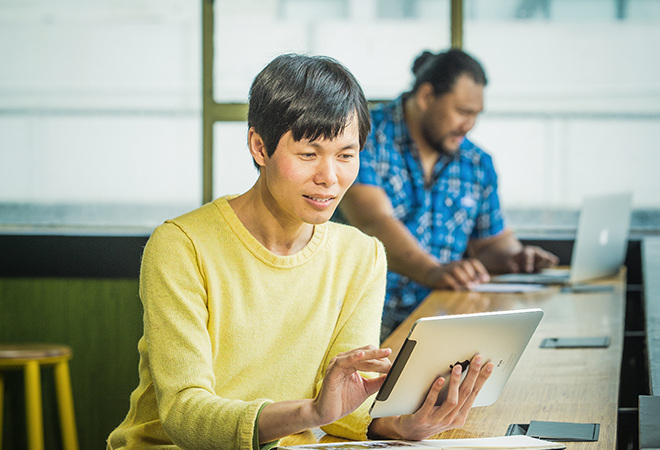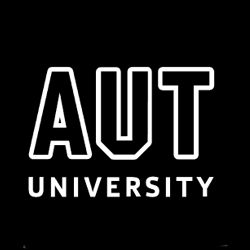
Learners and Mobile Devices: A Framework for Enhanced Learning and Institutional Change
Status
Completed: 14 February 2015
Project Details
A two-year national project exploring the use of mobile devices in the teaching and learning process. A collaboration involving six New Zealand tertiary institutions, led by the Auckland University of Technology (AUT).
Aims:
The aim of the project was to provide a range of practical strategies for students, teachers and leaders to use mobile devices for pedagogical transformation and empowering learners.
The project was guided by the following questions.
- Will learners’ mobile devices deliver innovation, inclusion, and transformation—the main potential benefits for learners? If so, how?
- What is the ‘framework for enhanced learning and institutional change’ that will deliver these benefits?
- What are the current conceptions about learners and mobile devices held by staff and student participants?
- What does research tell us about effective learning and teaching with m-devices?
- What kinds of support are required for teachers in their professional learning about effective use of m-devices?
- How can learners use the devices they already own more effectively in their studies?
- What are the benefits and disadvantages of a Bring Your Own Device approach for learners?
- What changes are required in the institutional context to enable staff and student engagement with mobile devices for enhanced learning outcomes?
- What are the benefits and challenges for Māori learners—how can traditional Māori pedagogies be better integrated into learning and teaching and what roles can mobile devices play in these pedagogies?
Methodology:
The project investigated the ways in which teachers could use mobile devices for the benefit of learners.
It was based on a communities of practice model developed at AUT where teachers were equipped with mobile devices and then supported to learn about the affordances of the devices for making changes to practice and enhancing student learning.
The project aimed to scale this model across the five partner institutions (Eastern Institute of Technology, Massey University, Otago Polytechnic, The University of Auckland, and UNITEC Institute of Technology).
Local coordinators at each institution recruited teachers to participate, facilitated the communities of practice development in their own contexts, and also liaised with the central AUT project team.
All participants were equipped with a smartphone and tablet, and then developed different approaches to their practice that incorporated their growing familiarity with m-learning.
Team

Dr Stanley Frielick
Auckland University of Technology (AUT)
Dr Dee Sciascia
Auckland University of Technology (AUT)Status
Funding
$300,000.00 (excl GST)
Key Findings
- Practitioners experimented with different aspects of mobile learning (m-learning) in their teaching practice and then reflected on their professional learning journeys and the extent to which changes in practice had enhanced learner experiences.
- Overall, practitioners were challenged to rethink their own pedagogical approaches to teaching and how these might be developed to improve and enhance the learning experiences of their students.
- Through experimentation, practitioners found ways that m-learning worked for them and aligned to their pedagogical philosophies, while also challenging them to step outside of their comfort zone and try new and innovative tools.
- Communities of practice were a key part of their support network which provided a space for sharing and collaboration amongst fellow colleagues.
- A key aspect of the project was a focus on Māori learners to understand what effective engagement looked like through mobile devices and m-learning.
Key Recommendations
Recommendations for teachers
- Teachers should have access to the same mobile devices as their learners.
- Teachers should have their technological and pedagogical development supported through a community of practice model.
- Teachers should be empowered to experiment with new tools and not be afraid to fail.
- The mobile device should be approached as part of a shift in pedagogy and assessment where technology is integrated with good teaching practice and learning theory.
- A close collaborative and inclusive learning environment enables teachers to work alongside learners with the implementation of mobile devices.
- The use of mobile devices to access content and resources can lead to increased engagement both inside and outside the classroom and familiarity with technologies currently being used in the work environment.
Recommendations for institutions
- Teachers need to be appropriately resourced to enable them to experiment and utilise mobile devices in their teaching practice.
- There should be robust infrastructure to support both current needs and also innovation and experimentation with new technology and spaces.
- There should be appropriate digital strategic directions that account for the needs of the implementation of mobile devices and considers values (that are often overlooked in policy and strategy).
These strategies are aimed towards practitioners and institutions within the tertiary sector but are also applicable to any teachers interested in pedagogical transformation through m-learning.
An executive summary of the final research report by Dr Stanley Frielick and Dr Dee Sciascia.
(PDF, 1.5 MB, 5-pages).
- 13 June 2016